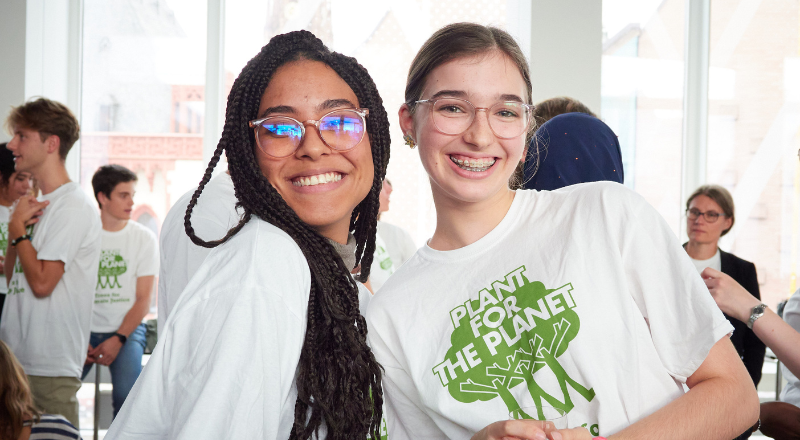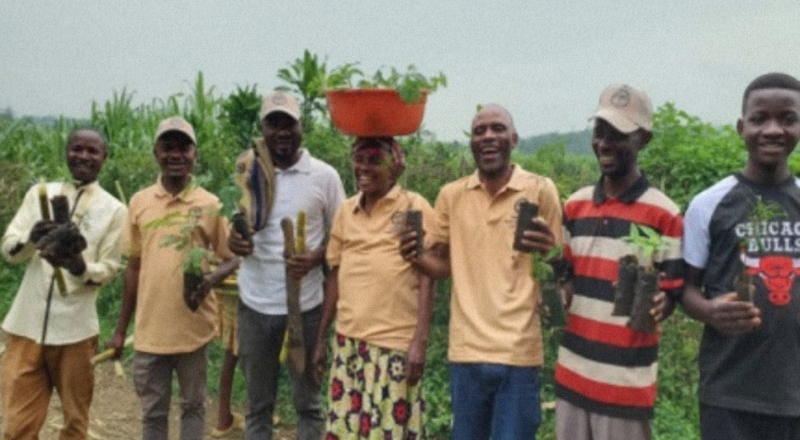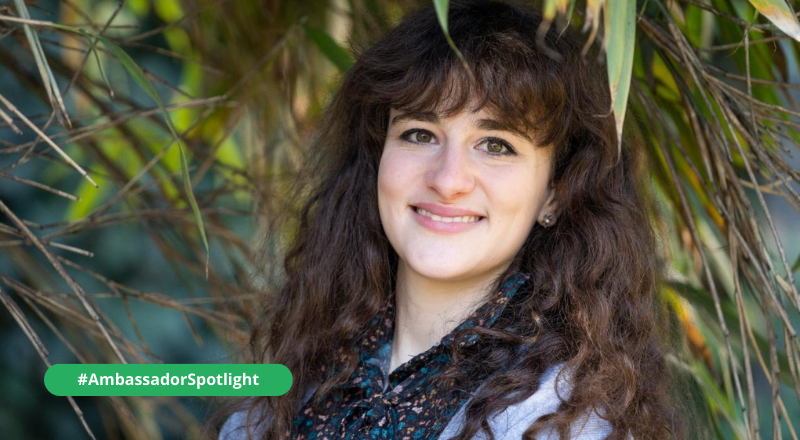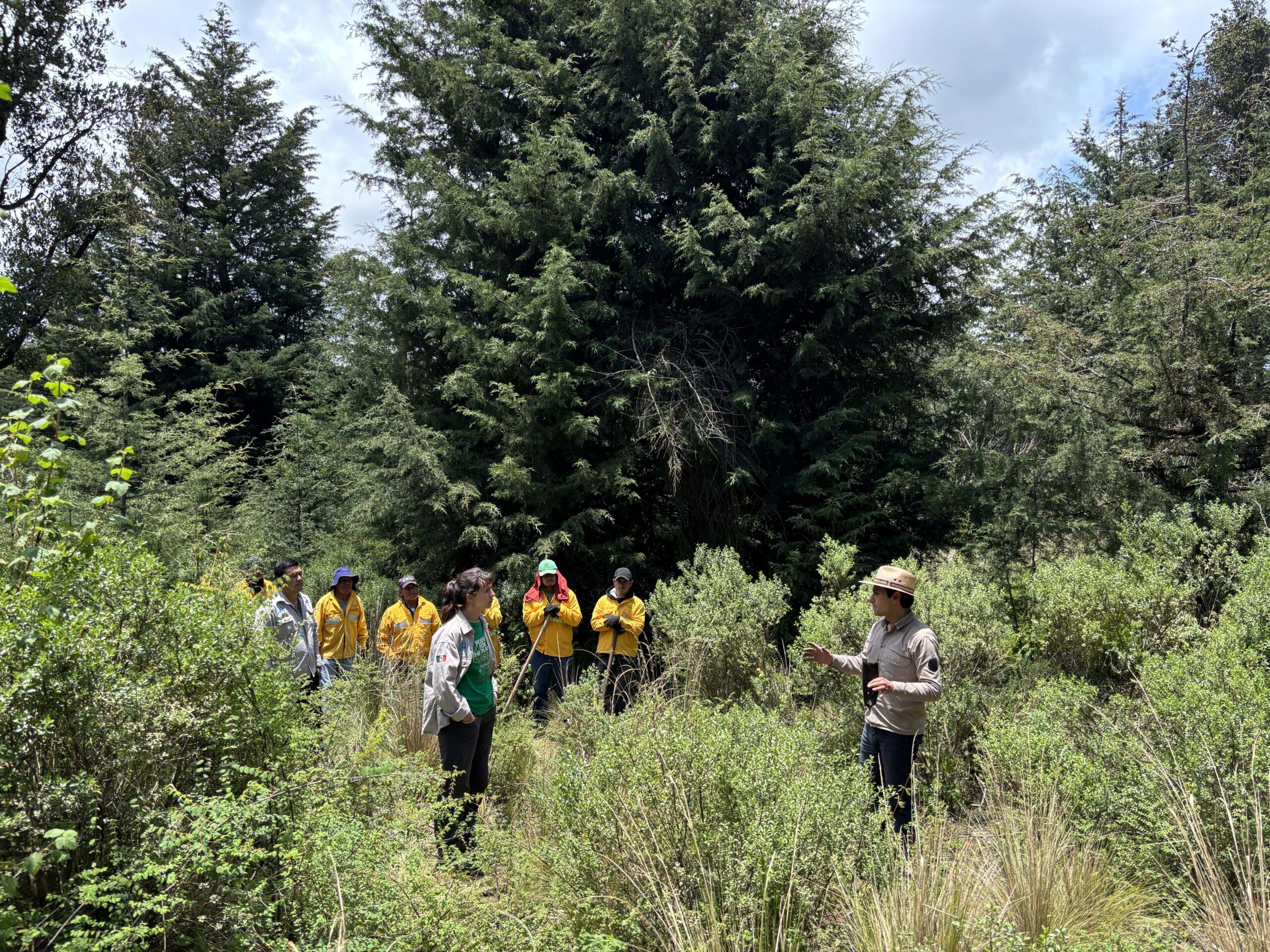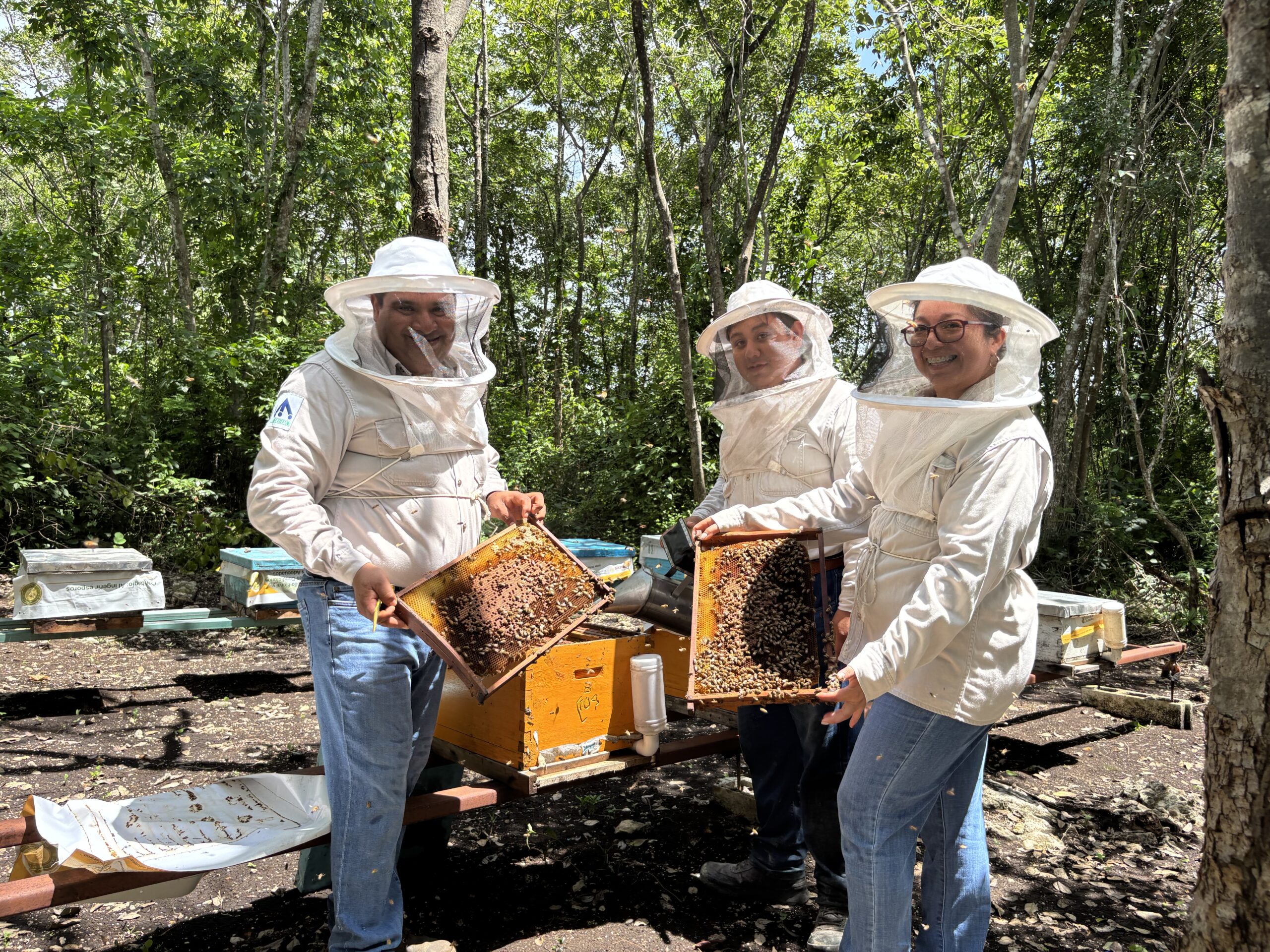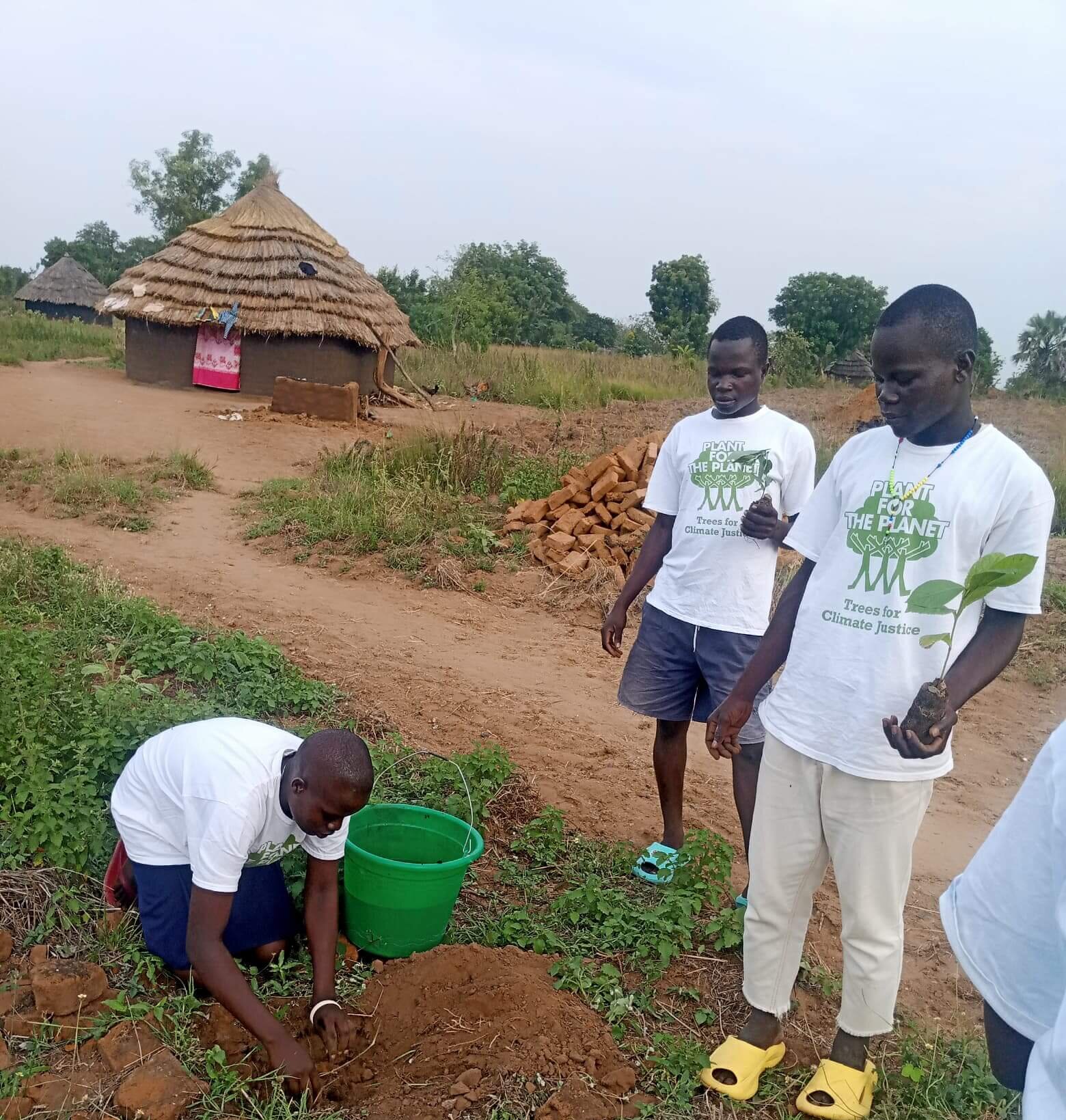
The establishment of a Plant-for-the-Planet Club in Uganda holds special significance. This East African country faces political and social challenges stemming from complex historical and economic developments. The legacies of colonialism remain visible today in the unequal distribution of wealth and resources, as well as in the social and political tensions that shape the country.
Climate and environmental protection are of crucial importance in Uganda, as the country is heavily impacted by the effects of the climate crisis. Droughts, floods, and changes in agricultural yields threaten the lives of many people. Recently a landfills in the outskirts of the capital Kampala was hit by landslide triggered by heavy rains killing 30 people and injuring hundreds. In this country the climate crisis disproportionately affects the poor and peasants in rural areas. The climate crisis hasn’t only impacted their sources of livelihoods but has led to surge in crop and human diseases.
To this context, Opar Albert, a passionate mentor of Plant-for-the-Planet, who hails from a rural peasant community in Uganda, has taken a decisive step to mobilize young people for climate justice. He founded a Plant-for-the-Planet Club, which has developed into a platform for the climate justice movement and has positive impacts on the local community. In April 2024, it was launched at a secondary school in Uganda, and Opar plans to expand the concept to other schools in the region.
This project enables young Climate Justice Ambassadors, who have already been active in primary schools, to take on an active role in secondary schools as well. The club is not only a space for exchange and education but also a key player in conducting tree planting projects. And it also aims to promote cross-school climate debates between secondary and elementary school pupils.

The launch of the club was met with great interest. More than 100 students wanted to participate, even though only 50 T-shirts were available for the members. The school supported the project enthusiastically, and the principal was particularly pleased with the integration of climate education into the school curriculum.

Already in March 2024, a youth summit took place, focusing on the topic of “Enhancing Social Media Engagement for Climate Justice.” This summit highlighted the important role that social media plays in spreading information and raising awareness about climate issues. Opar Albert’s new mentees participated with great enthusiasm, using their smartphones to amplify the global call for climate justice.
The commitment of Opar Albert and his mentees impressively demonstrates how young people in Uganda are actively addressing the global challenges of the climate crisis. The establishment of a Plant-for-the-Planet Club in a country grappling with social and political tensions is not only a courageous step but also an important contribution to the country’s future. In an environment where the effects of the climate crisis threaten the lives of many people, the club offers a beacon of hope. The Plant-for-the-Planet Club in Uganda shows that local initiatives can have asignificant impact on global challenges.
The photos were taken by Mr. Alege John, the deputy principal, and Madam Acio Jane, the agriculture teacher.
